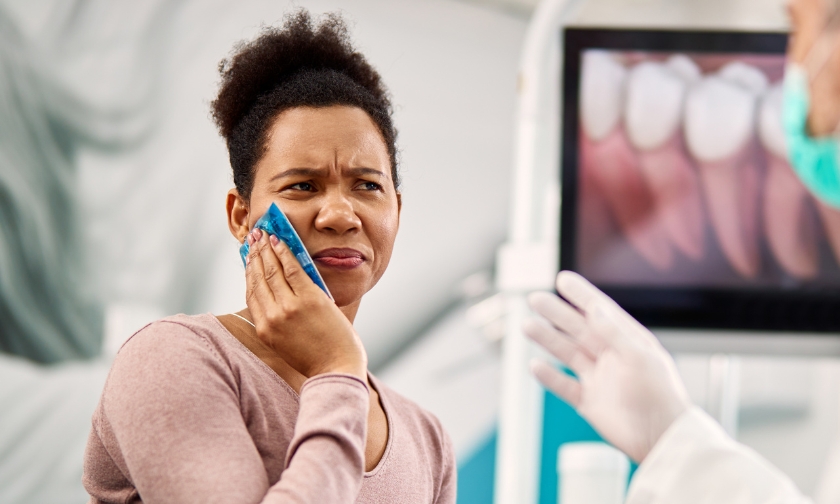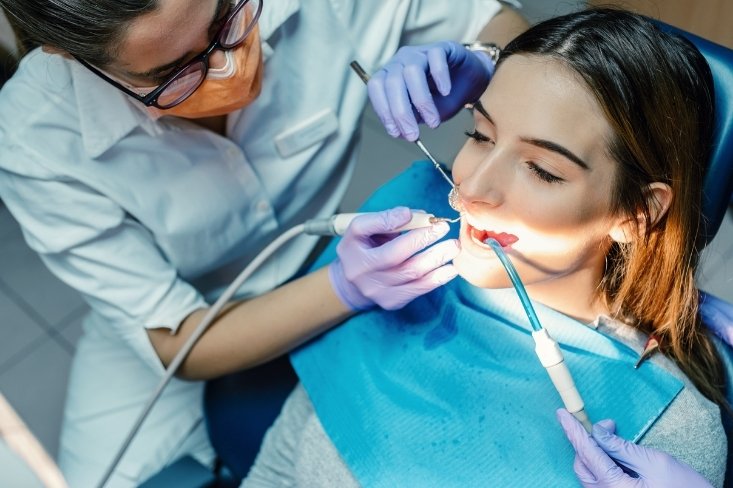704-844-2943
AVAILABLE FOR EMERGENCIES5 Essential Tips for Emergency Dental Care

Dental emergencies don’t knock. They burst in when you least expect it and make you go for emergency dental care.
You’re crunching popcorn and snap! Something hard hits your tongue. It’s your tooth! Perhaps it’s not popcorn. Maybe it’s ice, a fall, or a sharp pain in your jaw.
If you’ve never had one, you’re fortunate. However, keep in mind that fortune runs out. A knocked-out tooth or severe toothache has the ability to turn panic into bad choices.
Types of Dental Emergencies You Might Experience
Toothache
Severe, aching pain could indicate decay, trauma, or infection. You have to handle it as emergency dental care.
Knocked-out tooth
Care for by the crown, not the root. Time is of the essence in emergency dentistry situations such as this one.
Broken or chipped tooth
You must rinse with water and reserve any fragments. Moreover, you can use dental wax if sharp edges irritate you.
Lost crown or filling
Don’t chew on that side. Temporary dental cement provides relief until emergency dentistry sees to it.
Dental abscess
This infection spreads rapidly. If you see swelling or pus discharge, you must go in immediately for emergency dental treatment.
Emergency Dental Care Tips
You Must Remain Calm and Get an Overview
Panic will make matters worse. Consider breathing deeply and assessing your symptoms carefully.
You can ask: Is there bleeding? Can I talk? Is a tooth completely or partially out?
However, remaining calm allows you to think clearly and avoid further injury. Rapid action begins with a clear head in any emergency dental care situation.
Consider Saving Any Dislodged Teeth or Pieces
If a tooth comes out, you can pick it up by the crown, not the root. You have to gently rinse it in water, no brushing. Moreover, you must store it moist in milk or saliva.
You may also use a tooth preservation kit from your emergency dentistry kit. Consider getting to a dentist within 30 minutes for optimal salvage.
You Can Handle Pain and Swelling in a Safe Manner
In addition, you must take over-the-counter pain medication such as ibuprofen or acetaminophen as directed. Consider using a cold compress to control swelling and numb the pain.
You should never put aspirin on gums, as it burns tissue. This is an essential component of effective and safe management for emergency dentistry in Matthews.
Do Not Make the Injury Worse
Don’t chew on the affected side or repeatedly touch the damaged region. Moreover, you should never repair or examine the issue using sharp objects.
You should use dental wax to cover sharp edges or fractured braces temporarily. Protecting the area significantly prevents further issues during emergency dentistry treatment.
You Should Call an Emergency Dentist Right Away
Consider calling a 24/7 emergency dental care clinic immediately. You can use Google Maps, insurance apps, or local listings to locate help quickly. In addition, keep a list of local emergency dentistry contacts in your phone or printed out.
You can make a checklist of symptoms, medications, and dental history. Having it prepared makes your emergency visit quicker and more effective.
Dental emergencies are overwhelming. However, being prepared makes all the difference. These tips for emergency dental care ease pain, safeguard your teeth, and prevent long-term problems.
Take control, stay ready, and trust our emergency dentistry when it matters most.


